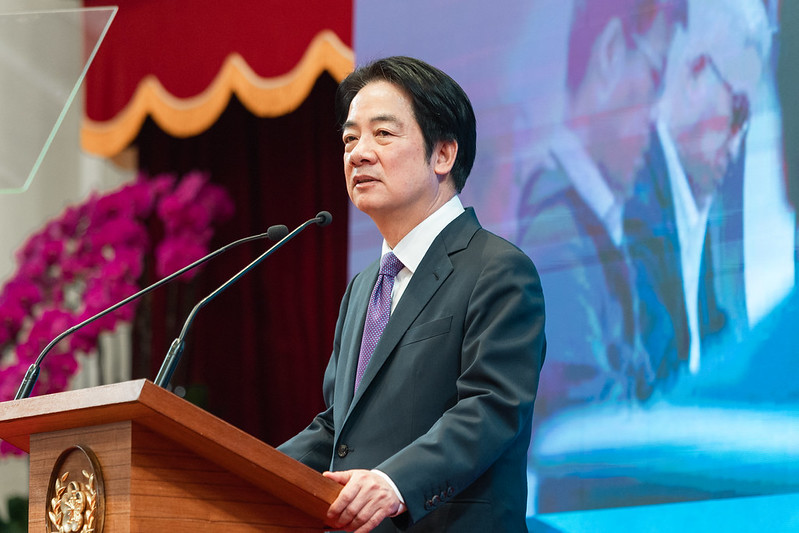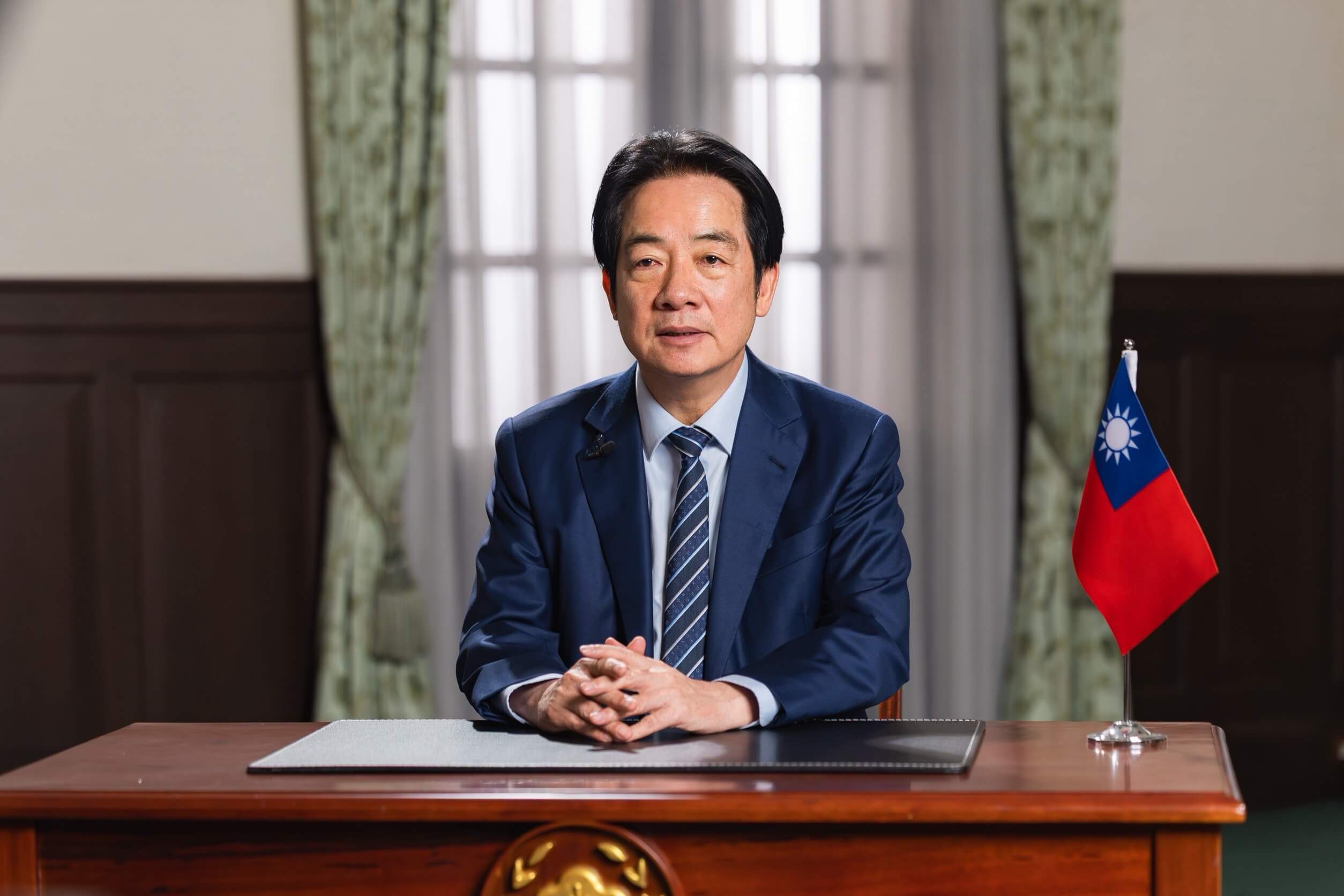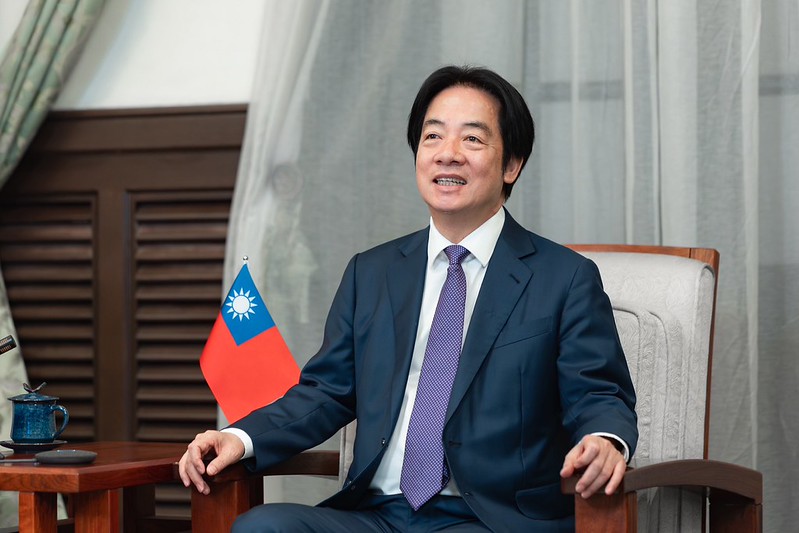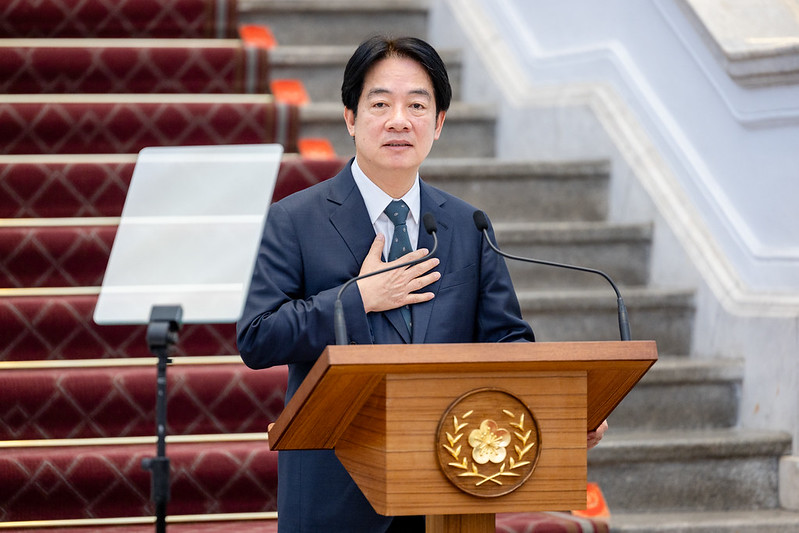News & activities
 News releases
News releases
On the morning of June 24, President Lai Ching-te delivered his remarks on recent legislative amendments. In remarks, President Lai emphasized opposition to an expansion of legislative power, not legislative reforms, and said that the legislature should naturally engage in reforms, but refrain from an excessive expansion of power, adding that any proposal for legislative reform should remain legal and constitutional. Particularly, the president said, the investigative powers of the Legislative Yuan should not infringe upon the powers of the judiciary or the Control Yuan, and more importantly, they must not infringe upon people’s basic rights, including the right to privacy, trade secrets, and the freedom to withhold expression. Therefore, on the basis of safeguarding the constitutional order and protecting the rights of the people, the president stated that he will petition the Constitutional Court for a constitutional interpretation, as well as petition for a preliminary injunction.
Emphasizing that the president’s role is as a guardian of democratic and constitutional governance, President Lai said that given that there are concerns about the recent amendments being unconstitutional, concerns that they confound constitutional provisions on the separation of powers and those on checks and balances, it is incumbent upon him to perform his duties as president and take action. Today, he said, he has decided to petition the Constitutional Court for a constitutional interpretation to rule on the constitutionality and legitimacy of the recent amendments. Stating that this approach is responsible to our nation and to our history and actually reflects the expectations of the people, the president expressed his hope that all of our fellow citizens can work together to safeguard our constitutional system and more deeply entrench our democracy, allowing for the sustainable development of Taiwan’s democracy.
A translation of President Lai’s remarks follows:
One month ago, I was sworn in as president, taking an oath before the people to observe the Constitution and faithfully perform my duties.
Therefore, following the legislature’s passing of amendments to the Law Governing the Legislative Yuan’s Power and to the Criminal Code, earlier this morning, I signed these amendments into law in accordance with the Constitution, and will promulgate the bills today.
However, aside from the deliberative process over the amendments raising pronounced concerns from the public, the contents of the bills also risk compromising the constitutional principle of separation of powers, as well as that of checks and balances.
A moment ago, Attorney Hong Wei-sheng (洪偉勝) explained our reasons for seeking to petition for a constitutional interpretation. I would like to share with our fellow citizens that it is the responsibility and mission of the president to safeguard our free and democratic constitutional system and protect the rights of the people.
In a free and democratic constitutional system, core principles include separation of powers, checks and balances, and the protection of human rights.
Separation of powers should be based on the Constitution, with the branches working independently while respecting one another. Regarding checks and balances, branches should function according to their institutional design to ensure constitutionally responsible government.
Therefore, I must emphasize that we are opposing an expansion of legislative power, not legislative reforms. The legislature should naturally engage in reforms, but refrain from an excessive expansion of power. Any proposal for legislative reform should remain legal and constitutional.
Particularly, the investigative powers of the Legislative Yuan should not infringe upon the powers of the judiciary or the Control Yuan. More importantly, they must not infringe upon people’s basic rights, including the right to privacy, trade secrets, and the freedom to withhold expression.
Therefore, on the basis of safeguarding the constitutional order and protecting the rights of the people, I will petition the Constitutional Court for a constitutional interpretation, as well as petition for a preliminary injunction.
On the issue of the president giving an address on the state of the nation at the Legislative Yuan, there are already existing regulations in place in the Constitution and the Law Governing the Legislative Yuan’s Power. During legislative sessions, the legislature may invite the president to give a state of the nation address on national security and major policies. I have previously said that on the condition of legal and constitutional procedures, I am willing to deliver a state of the nation address at the Legislative Yuan.
However, recent amendments passed by the legislature redefine the president’s address on the state of the nation as compulsory and require that the address be followed with an on-the-spot question and answer session, in an attempt to change the design of responsible government in the Constitution. This disrupts the institution of the Executive Yuan being responsible to the Legislative Yuan, leading to concerns about an overreaching expansion of the power originally bestowed to legislators by the Constitution.
As president, I will not impose my personal opinions on the constitutional order; nor will I place my personal interests before national interests.
As a physician, I deeply understand that any diagnosis should be made with care. When performing organ transplants, the physician must carefully evaluate and match various attributes, such as blood type, physical constitution, and other conditions.
The same principles for treating illness hold true for governing a country. Institutional or legal transplants performed in the absence of careful evaluation or discussion could lead to negative outcomes for the nation’s constitutional governance and the protection of the people’s rights. We must address these issues seriously.
Every law has far-reaching impact on our nation, our society, and the next generation. The president’s role is as a guardian of democratic and constitutional governance. Given that there are concerns about the recent amendments being unconstitutional, concerns that they confound constitutional provisions on the separation of powers and those on checks and balances, it is incumbent upon me to perform my duties as president and take action.
Today, I have decided to petition the Constitutional Court for a constitutional interpretation to rule on the constitutionality and legitimacy of the recent amendments. This approach is responsible to our nation and to our history and actually reflects the expectations of the people.
The Constitution stands as the supreme legal basis of our nation, and the Constitutional Court is the highest judicial organ that works to maintain the constitutional order and protect the rights of citizens. As to the interpretation, ruling and opposition parties must respect and accept the results, no matter what they turn out to be. And we also hope that the public will be able to support the results.
In the coming days, as this process of constitutional interpretation unfolds, there will be much discussion and debate among the public. I am confident that this will be a reaffirmation, by Taiwanese society, of our democratic and constitutional governance, and that it will make our democratic society even more mature.
For democracy to be even more deeply entrenched, it needs defending, and it needs dialogue. And the historic moment to defend the constitutional structure of free democracy is now.
I hope that all of my fellow citizens can work together to safeguard our constitutional system and more deeply entrench our democracy, allowing for the sustainable development of Taiwan’s democracy. Thank you.
Also in attendance were Secretary-General to the President Pan Men-an (潘孟安), Deputy Secretary-General to the President Xavier Chang (張惇涵), and agent ad litem Attorney Hong.









